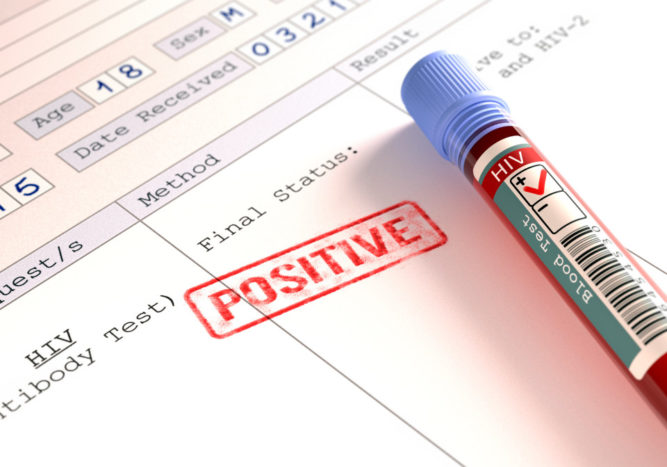Contents:
- Medical Video: 5 Common Signs of HIV
- 1. Do I also have HIV?
- 2. Where can you get it?
- 3. Do I also need an HIV test?
- 4. Can I still have sex with an HIV-positive partner?
- 5. If you have kissed your partner, have you contracted?
Medical Video: 5 Common Signs of HIV
HIV (Human Immunodeficiency virus) is a virus that attacks the immune system and makes sufferers weaker and more easily sick. Until now, the cure for HIV has not been found. So when you are infected with HIV, you will have it for life. Therefore, it is not surprising that many people are afraid of experiencing HIV. Especially if you hear an HIV positive partner. Surely your mind will be filled with many questions that you might not even know the answer to.
1. Do I also have HIV?
Yes you can or no. This depends on what activities you have done with your partner.
HIV is a virus that is transmitted through bodily fluids, if there has been contact with a partner's body fluids such as semen, vaginal fluids, blood, then you are at high risk of being infected with HIV. We recommend that you do further checks to ensure your health condition.
2. Where can you get it?
HIV can spread through the body fluids that people with HIV have. It is from these body fluids that you have to be more careful. The body fluids of people who are HIV can come from blood, semen, vaginal fluids, and breast milk.
HIV transmission is only possible if this fluid is in contact with mucous membranes or damaged body tissue. When touching the liquid it will directly mix in the bloodstream and the virus can spread throughout the body. So that the way to prevent HIV positive partners is to prevent contact from all of these fluids.
For activities such as hugs, holding hands, petting (especially those carried out still wearing clothes), swimming together, using towels or the same bathing place, the risk of transmission is very small and almost nonexistent.
3. Do I also need an HIV test?
The Centers for Disease Control and Prevention (CDC) recommends that everyone aged 13-64 years at least take an HIV test once. Moreover, people who are at high risk of HIV, such as having sex by changing partners or using alternate injections.
An HIV test is one of the important things to track whether you have HIV or not. If your partner has HIV, you must ensure the condition with an HIV test. That way, you will know what steps to take to overcome them.
If you are not HIV positive, do prevention well when facing a partner. If the results show you are HIV positive, immediately take treatment as early as possible before developing more severe.
The CDC also recommends that people who have HIV-positive partners should take the test more frequently 3-6 months.
4. Can I still have sex with an HIV-positive partner?
Having sex with a partner who is HIV positive does have a very high risk of contracting. Can or not is the choice of each partner.
If you want to have vaginal sex (a meeting of the penis with the vagina), it must be done carefully and use safety devices such as condoms. Likewise with anal sex, you must use a condom. The second reason this sex activity will involve a lot of body fluids is the place where the HIV virus spreads.
Other sexual relations such as oral sex can also be contagious, although the risk is indeed smaller than anal and vaginal sex. When the semen is swallowed, it also remains at risk of experiencing HIV transmission from all HIV-positive partners.
5. If you have kissed your partner, have you contracted?
Loving each other by kissing each other basically has a very small risk of contracting. Doing french kiss which involves the tongue to stick together, involving contact with saliva does not transmit HIV. Because, saliva contains several antibodies and natural enzymes that can prevent HIV from infecting healthy cells.
However, you must be careful, the risk of contracting HIV will increase when you have canker sores or open sores in the mouth, lips, gums or tongue. The wound can be the entrance of the partner's HIV virus to enter your body. So, having kissed also has the possibility to contract HIV even though there are conditions (there are injuries).
You should be sure to do an HIV test because the partner is usually unaware if he has a small wound in his oral cavity.













